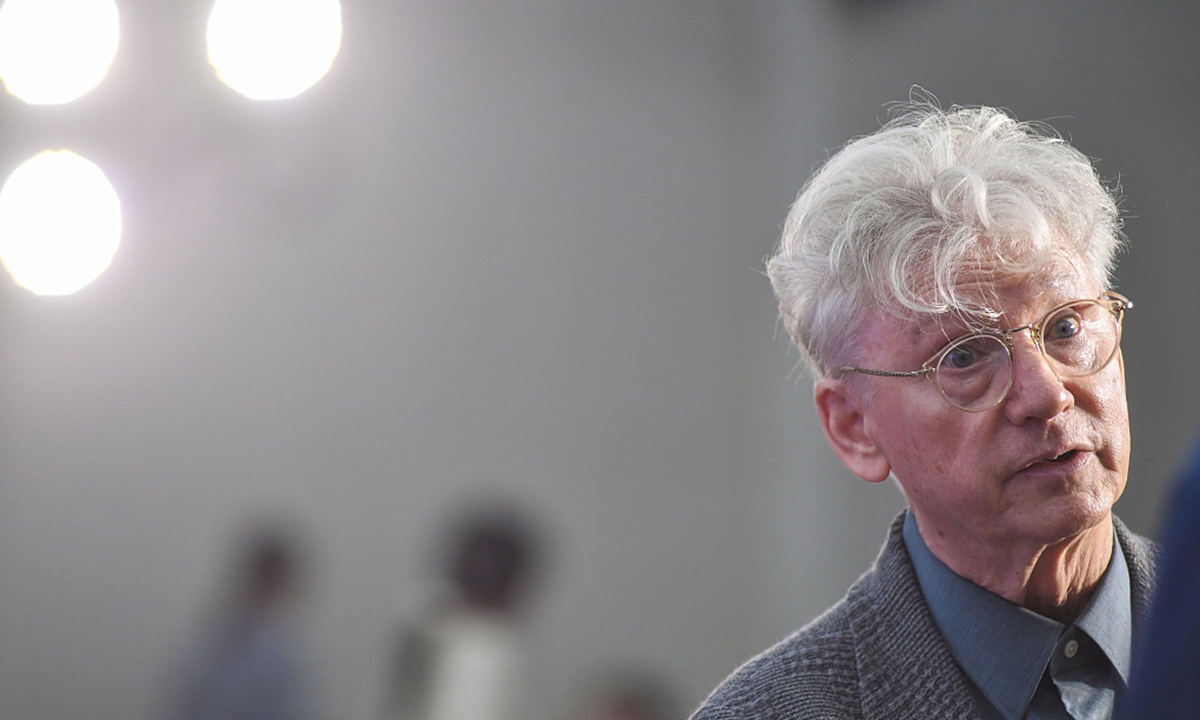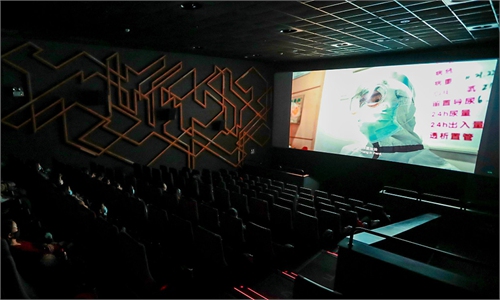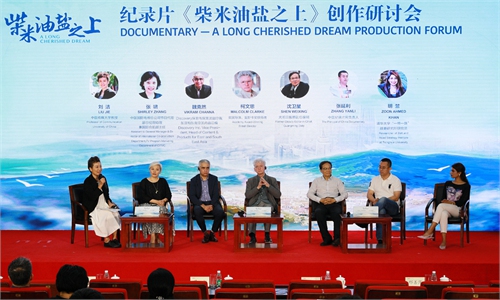ARTS / FILM
China has enemies who do not even understand why they are against China: UK Oscar-winner

Malcolm Clarke Photo: CFP
Malcolm Clarke, an Oscar-winning UK filmmaker, came to China once again to film a documentary about China's path to achieving xiaokang, or a moderately prosperous society. His third visit to the country, Clarke has remarked that each time he arrives he has seen for himself China's great breakthroughs: reforming and opening up, building the Chinese Dream and the completion of moderately prosperous society.
Clarke's four-episode documentary series A Long Cherished Dream reveals the stories of ordinary Chinese as they fight for happiness and a moderately prosperous society. The series launched on several channels and streaming platforms around the globe, including China Central Television (CCTV), Discovery in the US and Sky TV in the UK on Thursday.
Clarke said he is interested in exploring and telling Chinese stories, something he says few Westerners are willing to do because most of them do not understand what is happening in China.
The director told the Global Times on Friday that an awful lot of people do not want to say anything positive about China and there is a kind of global holy war against the country.
"China has enemies that I do not even think they understand why they are China's enemies," Clarke noted.
The UK filmmaker, who has won several Emmy and Academy awards, said he is most interested in changing the heart and minds of Western people who do not really understand China.
"I think it is hugely important to put a human face on the Chinese experience and on Chinese character to show that Chinese people are not actually that different from people anywhere else in the world," he said.
Making friends
When talking with the Global Times, the director spoke of why he decided to produce such a documentary.
Clarke said that when he heard that China had lifted all Chinese people out of extreme poverty, he felt very excited about what he thought was a marvelous achievement.
"If I heard of that in England, France or in the US and Canada, I would have been skeptical because poverty in the West is chronic, evasive and generational, but it was in China with this present administration. This present government decided that was not humane and was not moral to have people at that level of underdevelopment," Clarke said.
Clarke said he wants to show that these poverty alleviation programs are not only liberating people's bodies, but also liberating minds, so the director and the production team chose their four interviewees, including an official in a village, a truck driver and an acrobat, "very carefully."
The four "protagonists" of the series were not chosen because they were special but in fact because they were very ordinary, so their stories can also represent those of hundreds of thousands of families all over rural China.
One of most difficult parts for Clarke was winning the trust of the interviewees because of his Western appearance, especially in rural areas. He said he needed to let them leisurely talk about some private things such as their lives, finances and relationships with their significant others.
So the production team spent almost all their time with the interviewees, hanging out with them, eating with them, walking around their villages with them and sharing cigarettes with them even though none of the members of the production team actually smoke.
By the time the documentary was completed, the interviewers and interviewees had become friends. Clarke said that they still stay in touch with the interviewees and these are good memories for both sides.
One of the most impressive stories Clarke told was about four young men from a very poor village who vowed to stay together and help each other no matter what happened.
They stuck to their promise and finally made a lot of money in the express delivery business. To Clarke's surprise, they went back to their village and started putting money and resources into their hometown to help the next generation.
"It was kind of like a miniature xiaokang by people who really felt a bond to the place they grew up in."
Clarke and China
The director has come to China three times, each time encountering great change.
The first time he arrived in China was in 1981 when the policy of reform and opening-up just started being carried out. He traveled extensively around the country and was quite shocked by the level of poverty.
In 2013, he came to the country to film the work Better Angels and felt the country really did change. This time he learned about a new movement, the Chinese Dream, and saw a lot of new middle class people in China and the country heading toward the right direction.
The last time he arrived, he was able to witness the completion of a moderately prosperous society and came to understand the country even more.




